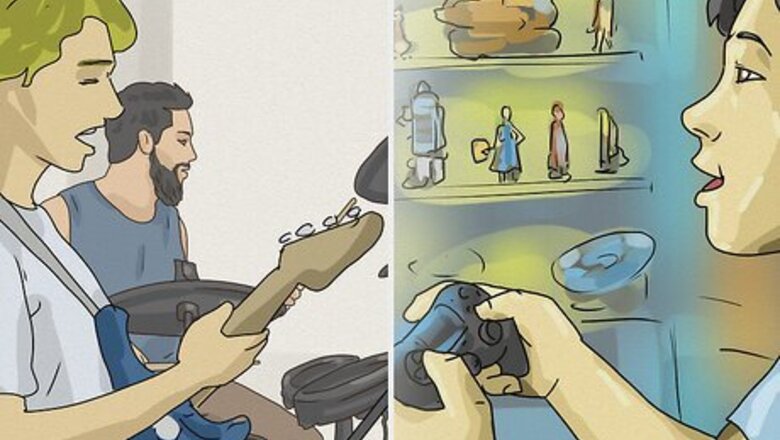
views
X
Trustworthy Source
Mayo Clinic
Educational website from one of the world's leading hospitals
Go to source
Take some time to learn what is causing your stress so you can begin to feel better.
Relieving Stress Through Exercise
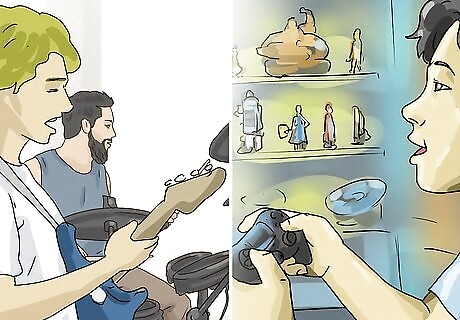
Make time to do the things you like. As well as getting regular exercise you should also make sure you give yourself the chance to do other things you enjoy. For example, this could be going to the movies, going for a coffee with a friend, or playing with your dog. Doing fun activities will take you away from stressful environments and allow you to let your hair down for a while. If you can achieve a good balance in your lifestyle you could find your stress levels dropping. Having a good work-life balance is very important for lowering your stress and achieving your best. Neglecting friendships will only make you more stressed in the long-term.
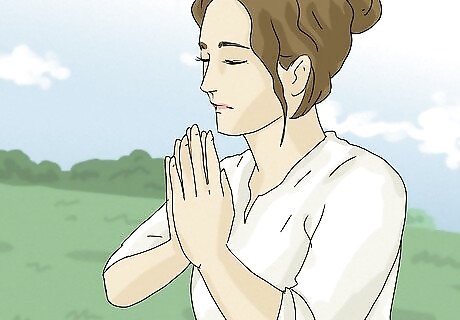
Take up yoga. As well as doing the activities that you enjoy, be on the look-out for new potential hobbies and activities. Yoga is a great option that combines physical activity, relaxation techniques, and a quiet and peaceful environment. It has been shown to work well in the reduction of stress and anxiety in scientific experiments. There are a wide-range of possibilities to suit all ages and all fitness conditions, so don’t think it is only for the young and athletic. Look up a course near you and speak to the instructor about the different options before signing up.
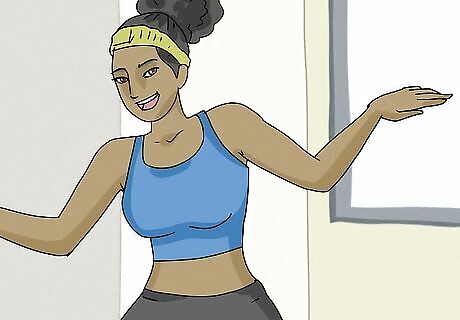
Enjoy regular exercise. Scientists argue that physical activity helps people to cope with stress, mild depression and anxiety by causing chemical changes in the brain which can help to positively alter mood. Taking regular exercise can also improve wellbeing by raising self-esteem and self-control. Adults should try to include 150 minutes of moderate-intensity exercise a week into their schedule. After a long day of work, just a short walk can help you to feel better and put the stress of the day behind you. Be creative about the activity you do. You don’t have to just run around in circles or swim laps. Often getting involved in team sports can be a more fun way to exercise.
Managing Stress Over Time
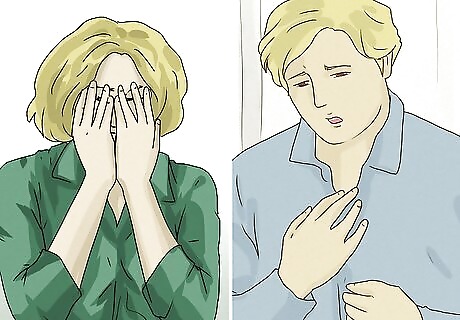
Monitor your stress level. You need to take stock of your stress in order to make changes in your life that lower it and can help you to handle it more effectively. Spend some time monitoring your stress levels and note down how often you feel yourself becoming stressed over a week. Of course the amount of stress you experience will fluctuate depending on what is happening in your life, but monitoring your stress over an initial set period is a good way to get you started thinking about it. Signs of stress include raised heart rate and sweating, as well as tightness in muscles, headaches, fatigue and shortness of breath. If you feel these signs think about what has caused this reaction.
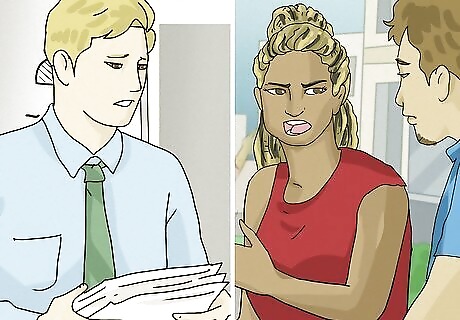
Identify stress triggers. Once you have begun to monitor and pay attention to your stress levels you need to try to identify specific stress triggers. Stress can come from many places. What triggers your stress? Your job? Your relationships? Your finances? Your children? Pinpointing where your stress is coming from is the first step toward dealing with it. As well as the obvious negative events, positive things in your life like getting married or buying a house can trigger stress. Once you have identified these, map them out on paper so you can visualize your stress points. You might like to separate them out into short-term and long-term factors.
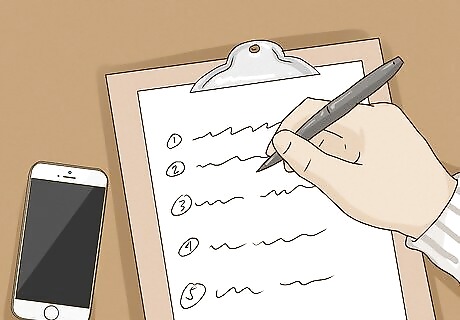
Work on strategies to tackle stress triggers. Once you’ve identified the sources of your stress, you can start trying to deal with the problems. Begin by identifying what aspect of the event or trigger you can control and focus in on what you can affect. A common cause of stress is simply piling up obligations and tasks that leave you with little time to relax or get some relief. You can tackle this by cutting down on your commitments and deciding which you really want to give time to. You can rank them according to importance. Look through your schedule and mark ones that you can step back from in order to give yourself more time to relax and have fun.
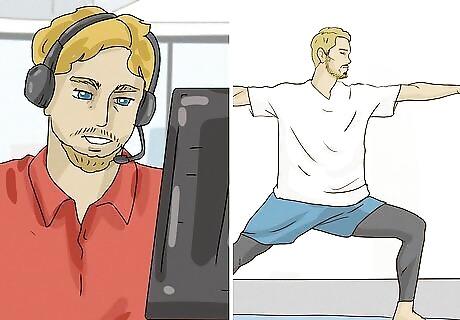
Develop good time management. As you scale back your commitments, take this opportunity to organize your time more and book in gaps where you don’t have to be somewhere or do something. Here you will get a clearer picture of what exactly you want to spend your time doing, which will be beneficial to you more broadly. Don’t be afraid to delegate or defer tasks. Plan out your time, but keep some flexibility. Having a time plan that is too rigid can heighten your stress. Leaving empty spaces in your schedule will give an opportunity to relax. Even half an hour or your own in the evening can help.
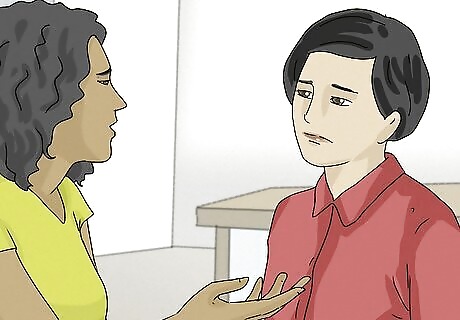
Don’t think you have to do it all alone. If you are suffering from stress and anxiety don’t think you have to endure it on your own and just battle through. Try talking to a trusted friend or family member about how you are feeling. Communication is very important and it can help you release tension. You don’t have to sit down for a serious conversation and spill your innermost secrets. Just venting about things that are stressful can ease the pressure. If you think it could be helpful to talk to a professional, consider contacting a qualified counsellor or therapist. Sometimes it’s easier to talk to a stranger.

Understand that there is no silver bullet. Monitoring your stress levels, finding your stress triggers and beginning to take action tackle them can all help you to lower your stress over time. There are, however, no immediate perfect remedies to a stressful lifestyle. Try to incorporate these practices while keeping a sense of humour about the trials and tribulations of modern life. Seeing the funny side can be a big help that makes you more resilient to the inevitable setbacks.
Limit Stress By Staying Healthy
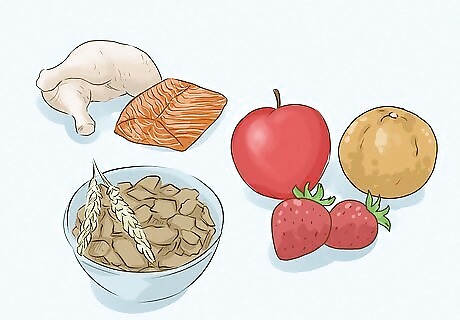
Eat healthily. As well as regular exercise, eating a healthy balanced diet can make a significant contribution to a less stressful lifestyle. By making healthy positive choices with your diet you can make yourself both physically and emotionally stronger. Taking active care of yourself will boost your self-esteem as well as giving you more energy and more control over your body. Having a good diet will help your body function more efficiently. Have a balanced diet that includes the food groups from the FDA food plate. Taking the time to cook a delicious healthy meal in the evening can be a good way to de-stress at the end of a tough day.
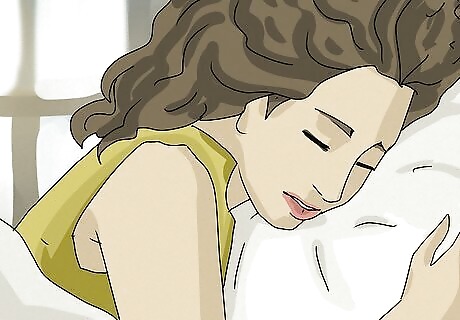
Get enough sleep. The average adult requires between 7 and 9 hours of sleep per night. Not only can a lack of sleep lead to increased stress, but chronic sleep deprivation can impair your judgment, reasoning ability, appearance, libido, and your performance at work or school. Increase the amount of sleep you get by doing the following: Establishing and sticking to a daily sleep schedule. Doing something relaxing before bed, such as reading or breathing exercises. Turning off your electronic devices. Sleeping in a comfortable environment. Avoiding alcohol and caffeine, which can disrupt sleep.
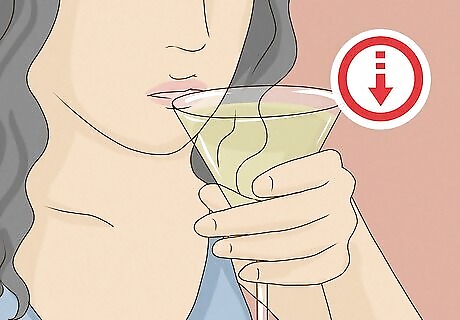
Limit your alcohol intake. Avoiding drinking above the recommended amounts of alcohol can help you to be more emotionally healthy. Men are recommended not to regularly drink more than three or four units a day. For a woman the equivalent is two or three units a day. Drinking can be attractive when you are particularly stressed, but it can exaggerate those feelings, making you angry and aggressive. One unit of alcohol equals approximately a 25 milliliters (0.85 fl oz) measure of spirits (ABV 40%), a third of a pint of beer (ABV 5 to 6%), or half a standard (175ml) glass of wine (ABV 12%). You can download digital tools to help you keep track of how many units you consume. If you feel like alcohol is becoming a problem you should speak to your doctor.
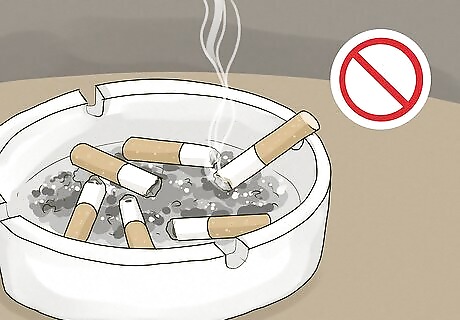
Be smoke free. If you are a smoker, cutting down or quitting helps to relieve your stress and anxiety, as well as giving you a more positive outlook on life. Together with the well-known benefits to your physical health being smoke free brings, there are proven benefits for your mental health too. Despite the myth that smoking relaxes you, in fact it increases anxiety and tension. Smokers are more likely to develop depression or anxiety disorder over time. Cutting down will improve your mood in the long-term. It will also save you a lot of money which can help lower financial stresses. If you stop smoking ten cigarettes a day you will save around £1000 a year.
Practicing Relaxation Techniques
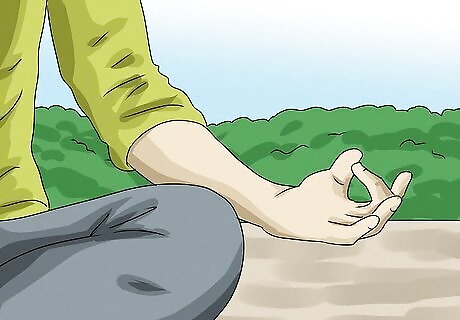
Try out some meditation. As well as making improvements to your general lifestyle and cutting back on your commitments to secure some time for yourself, you can try some specific relaxation techniques to help you unwind. Meditation is an ancient practice that is aimed at calming your mind and helping you become at peace with yourself. Try just sitting quietly while being aware of your breathing. As thoughts pop into you head, try to return your mind’s focus to your steady breathing. Alternatively, focus on an object you have placed in front of you, or you could try to visualise something calming, like a gentle sea. You might find it hard at first but you will improve the more you practice meditation.

Do some relaxed deep breathing. If you find it hard to stick with the meditation you could practice some relaxed deep breathing. Sit in a comfortable chair which supports your head, or lie down flat with your palms up and your legs a little apart. Fill up your lungs without forcing them, breathing in through your nose. Count to five as you breathe in. Breathe out through your mouth, slowly counting to five again. Repeat this with a regular and controlled rhythm. Breathe without pausing or holding your breathe, and keep doing this until you feel calm and relaxed. Try to do this for three to five minutes, two or three times daily.
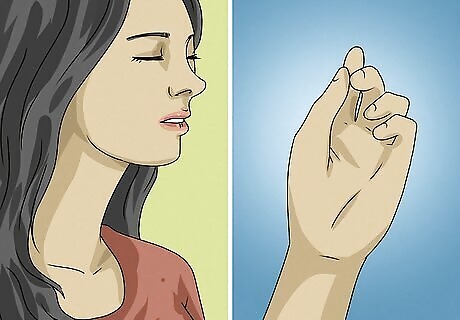
Attempt deep muscle relaxation. If you have some more time then you can try practicing a deep muscle relaxation session. This will take around twenty minutes and it stretches and relaxes different muscles which releases tension from your body and mind. Once you have a warm and quiet place, sit or lie down and concentrate on steady breathing. Going through each in turn you will release the tension from your face, neck, shoulders, chest, arms, legs, wrists and hands. Repeat each exercise a couple of times before moving on. Begin by pushing together your eyebrows, as if you were frowning, hold for a few seconds and then release. Next move onto the neck by gently tilting the head forward, with your chin down towards your chest, holding for a few seconds, before lifting your head back up. Pull your shoulders up towards your ears, hold there, then relax them. For your chest, breathe slowly and deeply into your diaphragm then breathe out slowly. Allow your belly to deflate as the air is exhaled. Then stretch your arms away from your body, reaching forward and holding, before relaxing. With your legs stretched out, push your toes away from your body, pull them back towards your body, and then relax. Finally stretch your wrists by pulling your hand up towards you, stretching the fingers and thumbs and holding before relaxing.














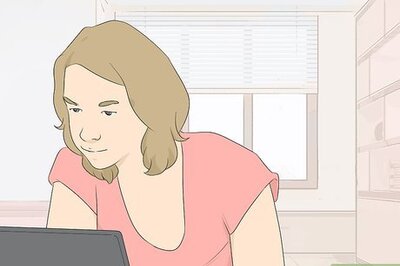



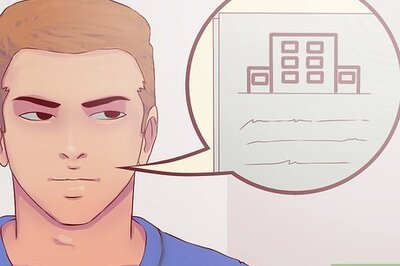

Comments
0 comment